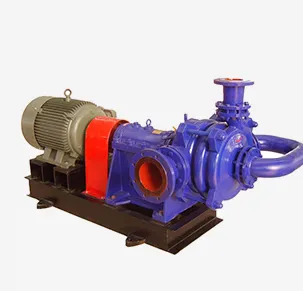Haitian Creole
- Afrikaans
- Albanian
- Amharic
- Arabic
- Armenian
- Azerbaijani
- Basque
- Belarusian
- Bengali
- Bosnian
- Bulgarian
- Catalan
- Cebuano
- Corsican
- Croatian
- Czech
- Danish
- Dutch
- English
- Esperanto
- Estonian
- Finnish
- French
- Frisian
- Galician
- Georgian
- German
- Greek
- Gujarati
- Haitian Creole
- hausa
- hawaiian
- Hebrew
- Hindi
- Miao
- Hungarian
- Icelandic
- igbo
- Indonesian
- irish
- Italian
- Japanese
- Javanese
- Kannada
- kazakh
- Khmer
- Rwandese
- Korean
- Kurdish
- Kyrgyz
- Lao
- Latin
- Latvian
- Lithuanian
- Luxembourgish
- Macedonian
- Malgashi
- Malay
- Malayalam
- Maltese
- Maori
- Marathi
- Mongolian
- Myanmar
- Nepali
- Norwegian
- Norwegian
- Occitan
- Pashto
- Persian
- Polish
- Portuguese
- Punjabi
- Romanian
- Russian
- Samoan
- Scottish Gaelic
- Serbian
- Sesotho
- Shona
- Sindhi
- Sinhala
- Slovak
- Slovenian
- Somali
- Spanish
- Sundanese
- Swahili
- Swedish
- Tagalog
- Tajik
- Tamil
- Tatar
- Telugu
- Thai
- Turkish
- Turkmen
- Ukrainian
- Urdu
- Uighur
- Uzbek
- Vietnamese
- Welsh
- Bantu
- Yiddish
- Yoruba
- Zulu
Telephone: +86 13120555503
Email: frank@cypump.com
Dec . 12, 2024 01:57 Back to list
slurry pump impeller
Understanding Slurry Pump Impellers Design, Function, and Applications
Slurry pumps play a crucial role in various industrial applications, especially in sectors dealing with the transportation of abrasive or viscous materials. Essential to the functionality of a slurry pump is the impeller, a component that directly interacts with the fluid and is responsible for imparting energy to move the slurry through the pump.
What is a Slurry Pump Impeller?
A slurry pump impeller is a rotating component that manages the flow of liquid combined with solid particles, known as slurry. The design of the impeller significantly influences the pump’s efficiency, performance, and durability. Impellers can be made from various materials, including high-chrome alloys, rubber, and ceramic coatings, to withstand the harsh conditions often encountered when handling abrasive slurries.
Types of Impellers
Impellers can be broadly categorized into two types open and closed impellers.
1. Open Impellers These have no shroud; thus, the blades are open on both sides. This design promotes better handling of solids and is often chosen for applications where free-flowing slurry is predominant. Open impellers are easier to clean and are less prone to clogging, making them suitable for slurries with larger solids.
2. Closed Impellers These have a shroud that encloses the impeller blades. This design allows for better hydraulic efficiency and is typically employed in applications requiring higher pressure and flow rates. Closed impellers provide a more stable flow and are generally preferred in systems where the size of the solids is more controlled.
Design Considerations
slurry pump impeller

When designing a slurry pump impeller, several factors must be taken into account. These include the size and shape of the particles in the slurry, the desired flow rate and pressure, the specific gravity of the fluid, and the type of material being pumped. For instance, in mining applications where the slurry might contain very abrasive materials, a high-chrome iron impeller might be selected for its excellent wear resistance.
Another critical aspect of impeller design is the hydraulic performance. Impellers are optimized to ensure that they can efficiently transfer energy from the motor to the slurry. This efficiency minimizes energy consumption and operational costs, which is essential for large-scale industrial operations.
Applications in Industry
Slurry pump impellers are utilized in various industries, including mining, mineral processing, wastewater treatment, and chemical processing. In the mining sector, for example, they transport ore slurries that contain a mix of water, mineral particles, and other elements. In wastewater treatment, slurry pumps help in the removal of sludge and other residuals, ensuring that the treatment process runs smoothly.
In chemical processing, slurry pumps equipped with robust impellers can handle corrosive and abrasive materials, contributing to operational efficiency and reducing downtime. The versatility and adaptability of slurry pump impellers make them indispensable in industries that rely on effective material handling.
Maintenance and Longevity
To ensure the longevity and effectiveness of a slurry pump impeller, regular maintenance is essential. This includes monitoring wear and tear, conducting inspections for signs of erosion or damage, and timely replacements of worn components. Proper maintenance not only extends the lifespan of the impeller but also enhances the performance of the entire pump.
Conclusion
In conclusion, slurry pump impellers are vital components in the efficient transportation of slurry across various industrial processes. Their design, material selection, and maintenance are paramount in ensuring that the pumps operate optimally. With continuous advancements in technology and materials, slurry pump impellers will undoubtedly evolve, further enhancing efficiency and reliability in handling challenging slurries. Understanding these elements is critical for engineers and operators involved in industries reliant on slurry movement, driving innovations that improve operational performance and reduce costs.
-
ISG Series Vertical Pipeline Pump - Chi Yuan Pumps Co., LTD.|High Efficiency, Low Noise, Durable
NewsAug.02,2025
-
ISG Series Vertical Pipeline Pump - Chi Yuan Pumps | High Efficiency, Low Noise
NewsAug.02,2025
-
ISG Series Vertical Pipeline Pump- Chi Yuan Pumps Co., LTD.|High Efficiency&Compact Design
NewsAug.02,2025
-
Heavy-Duty Mining Sludge Pumps - Wear-Resistant Slurry Handling
NewsAug.02,2025
-
Horizontal Split Case Pump with GPT-4 Turbo | High Efficiency
NewsAug.01,2025
-
ISG Series Pipeline Pump - Chi Yuan Pumps | High Efficiency, Durable Design
NewsAug.01,2025










